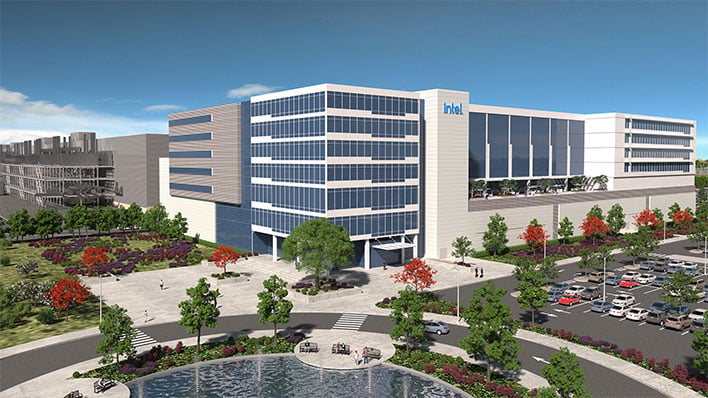Intel Splurges $58B On Chip Manufacturing Fabs In Germany And Israel

Intel continues to invest big money in seeing through its IDM 2.0 strategy that Pat Gelsinger laid out not long after returning to the chip firm as its chief executive officer in 2021. Having already committed to billions of dollars in chip fab investments since his return, Intel this week announced it has signed a revised letter of intent with the German federal government to build a leading-edge wafer fabrication site in Magdeburg.
As part of the agreement, Intel will spend more than 30 billion euros (around $32.7 billion in US dollars) on tow "first-of-a-kind semiconductor facilities," otherwise known as fabs, in Europe. The deal also calls for increased government support, including unspecified incentives to reflect the expanded scope of the massive semiconductor investment.
"Building the ‘Silicon Junction’ in Magdeburg is a critical part of our strategy for Intel’s growth. Combined with last week’s announcement of our investment in Wrocław, Poland, and the Ireland sites we already operate at scale, this creates a capacity corridor from wafers to complete packaged products that is unrivaled and a major step toward a balanced and resilient supply chain for Europe," Gelsinger said in a statement.

Intel had already purchased the land for the fab site in November of last year. As it goes with these kinds of things, it will take some time for the project to reach fruition—Intel says the first facility will go into production in four to five years, pending EU approval of the incentive package.
The timing puts the fab on track to go online well after Intel enters the angstrom era, the first of which is its Intel 20A node (Arrow Lake) later this year, followed Intel 18A (Lunar Lake) in 2025.
Intel estimates that the new site will create 7,000 construction jobs during the first phase of the build, and 3,000 permanent high-paying tech jobs. Additionally, it anticipates tens of thousands of jobs across the industry ecosystem as a result of its expanded investment in Germany.
Intel also struck a deal with the Prime Minister of Israel, Benjamin Netanyahu, to build another fab in Kiryat Gat. Slated to open in 2027, the upcoming factory represents a separate $25 billion investment, according to Reuters, and will remain in operation at least through 2035.
During a press conference announcing the deal, Netanyahu called the deal "a tremendous achievement for the Israeli economy," adding that it's the "largest investment ever by an international company in Israel."
As part of the deal, Intel agreed to an increase in the corporate tax rate, from 5% to 7.5%. The deal will also create thousands of jobs in the region. Just as importantly, this and other chip fab investments will put Intel in a better position to compete with TSMC in the manufacturing space.

